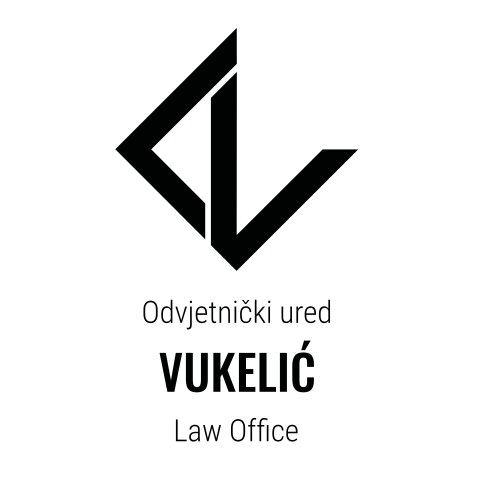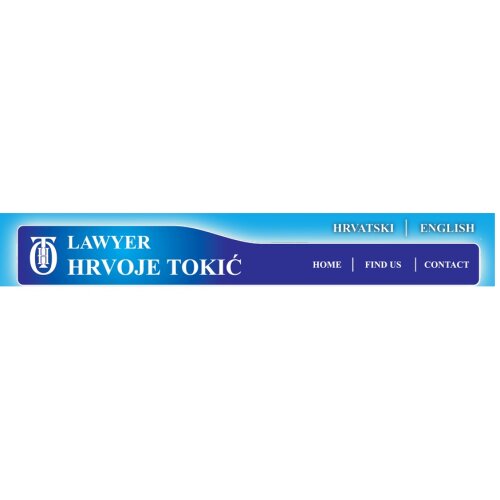Best Private Equity Lawyers in Croatia
Share your needs with us, get contacted by law firms.
Free. Takes 2 min.
Or refine your search by selecting a city:
List of the best lawyers in Croatia
About Private Equity Law in Croatia
Private equity in Croatia refers to investment funds and strategies that invest directly in private companies, either by acquiring shares or through buyouts and venture capital investments. Private equity is a growing sector in Croatia, benefiting from the country's stable regulatory environment, EU membership, and increasing investor interest. The Croatian legal framework aligns with European Union regulations, providing clear guidance for private equity transactions, cross-border investments, and the protection of investor rights. Private equity activities typically involve mergers and acquisitions, restructuring, management buyouts, and venture capital deals in various industries, from technology to manufacturing.
Why You May Need a Lawyer
Private equity transactions are complex and often involve significant financial and legal risks. Seeking legal advice is crucial in the following situations:
- Structuring and negotiating investment deals to ensure your interests are protected
- Performing due diligence on target companies to identify potential legal or financial issues
- Navigating regulatory approvals and compliance with Croatian and EU laws
- Drafting and reviewing agreements, such as shareholder agreements, purchase agreements, and exit strategies
- Managing disputes among investors, target companies, or other stakeholders
- Advising on tax implications and structuring investments for optimal efficiency
- Assisting in cross-border transactions with foreign investors or assets
- Handling employment, labor, or intellectual property issues arising from investments
A lawyer with expertise in private equity can help you avoid costly mistakes, safeguard your investment, and ensure compliance with all legal requirements.
Local Laws Overview
Private equity in Croatia is subject to a combination of national and EU regulations. Some of the most important legal aspects include:
- Company Law: The Companies Act regulates company formation, governance, shareholder rights, mergers, and acquisitions. It provides the foundation for structuring private equity investments.
- Securities Law: The Capital Market Act governs the offering and trading of securities, as well as transparency and disclosure requirements. Even though private equity often deals with non-public companies, some regulations may still apply.
- Foreign Investment Control: Croatia generally allows foreign investors to participate in private equity, but certain sectors may require prior approval or notification.
- Taxation: Corporate income tax, capital gains tax, VAT, and withholding taxes are crucial considerations in structuring private equity transactions. Tax incentives may apply to specific investments, such as venture capital in innovative companies.
- Merger Control and Competition: The Agency for the Protection of Market Competition oversees mergers, acquisitions, and joint ventures to prevent anti-competitive practices.
- Employment Law: Labor law provisions may impact restructuring or operational changes resulting from private equity investments.
Compliance with these legal requirements is vital for the success and legality of any private equity transaction in Croatia.
Frequently Asked Questions
What is private equity?
Private equity involves investing in or acquiring private companies that are not listed on stock exchanges, often with the goal of improving their performance and eventually selling them at a profit.
Are foreign investors allowed to participate in private equity deals in Croatia?
Yes, foreign investors can participate in Croatian private equity deals. However, there may be restrictions or reporting requirements in certain regulated sectors such as defense, media, or utilities.
What legal entities are commonly used for private equity investments in Croatia?
The most common legal forms are joint stock companies (dioničko društvo - d.d.) and limited liability companies (društvo s ograničenom odgovornošću - d.o.o.).
What due diligence is necessary before investing in a Croatian company?
Legal due diligence typically covers corporate structure, contracts, intellectual property, regulatory compliance, litigation history, tax status, and labor matters.
Is regulatory approval required for private equity transactions?
Some transactions, especially in regulated industries or those exceeding certain thresholds, require approval from the Croatian Competition Agency or other regulators.
How are private equity investments taxed in Croatia?
Taxation depends on the investment structure and assets involved. Common taxes include corporate income tax, capital gains tax, and withholding tax on dividends. Consulting a tax advisor is recommended.
What documents are involved in a typical private equity deal?
Key documents include term sheets, share purchase agreements, shareholder agreements, due diligence reports, and regulatory filings.
Can disputes arising from private equity investments be resolved through arbitration?
Yes, arbitration is a common method for resolving disputes. Parties can agree to domestic or international arbitration, such as proceedings before the Permanent Arbitration Court at the Croatian Chamber of Economy.
Are there venture capital funds specifically operating in Croatia?
Yes, there are several venture capital and private equity funds operating in Croatia, supported by local initiatives and EU-backed programs.
What protections do minority shareholders have in private equity investments?
Croatian law provides certain protections for minority shareholders, including rights to information, dividends, and legal remedies in case of unfair treatment or major structural changes.
Additional Resources
If you need further information or wish to stay updated on private equity matters in Croatia, consider consulting these resources:
- Croatian Financial Services Supervisory Agency (HANFA): Supervises financial markets and investment funds
- Agency for the Protection of Market Competition: Monitors and controls mergers, acquisitions, and competition matters
- Croatian Chamber of Economy: Provides information and support for investors, including arbitration services
- Ministry of Economy and Sustainable Development: Offers guidance on investment incentives and regulations
- Croatian Private Equity and Venture Capital Association: Represents industry stakeholders and promotes best practices
Next Steps
If you are considering a private equity transaction or require legal advice in Croatia, follow these steps:
- Assess your investment goals and identify the type of legal help you need
- Prepare basic information about your planned investment, such as the target sector, company, and transaction size
- Contact a lawyer specialized in private equity and corporate law in Croatia
- Schedule a consultation to discuss your options, risks, and legal requirements
- Work with your lawyer throughout the due diligence, negotiation, and documentation stages
- Ensure ongoing compliance with local laws and best practices after the transaction
Taking these steps can help you navigate the complexities of private equity in Croatia, minimize risk, and maximize your investment's potential for success.
Lawzana helps you find the best lawyers and law firms in Croatia through a curated and pre-screened list of qualified legal professionals. Our platform offers rankings and detailed profiles of attorneys and law firms, allowing you to compare based on practice areas, including Private Equity, experience, and client feedback.
Each profile includes a description of the firm's areas of practice, client reviews, team members and partners, year of establishment, spoken languages, office locations, contact information, social media presence, and any published articles or resources. Most firms on our platform speak English and are experienced in both local and international legal matters.
Get a quote from top-rated law firms in Croatia — quickly, securely, and without unnecessary hassle.
Disclaimer:
The information provided on this page is for general informational purposes only and does not constitute legal advice. While we strive to ensure the accuracy and relevance of the content, legal information may change over time, and interpretations of the law can vary. You should always consult with a qualified legal professional for advice specific to your situation.
We disclaim all liability for actions taken or not taken based on the content of this page. If you believe any information is incorrect or outdated, please contact us, and we will review and update it where appropriate.
Browse private equity law firms by city in Croatia
Refine your search by selecting a city.

















